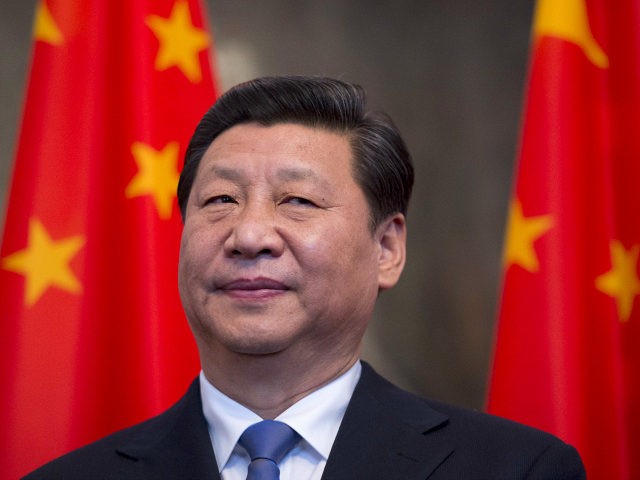China’s state-run Global Times on Wednesday offered a lukewarm review of President Donald Trump’s 2019 State of the Union Address (SOTU), applauding his effort to build political unity in the United States but insisting the U.S. is too “deeply divided” to accomplish anything worthwhile.
The Global Times was ambivalent about the part of the speech where Trump listed the high points of his administration so far, sniffing that “mediocre achievements are not enough.”
The Chinese paper did not actually dismiss Trump’s administration as mediocre, but it cited every reason it could find in American media and Democrat Party rhetoric to question whether the U.S. economy is as strong as Trump claimed.
After gleefully anticipating a deeper partisan divide and “fiercer political wrestling” as the 2020 election approaches, the Global Times got around to the part of SOTU 2019 that really got under its skin, the passages about China:
Trump mentioned China in his speech. Although he mainly talked about trade policy, he linked it to politics. He mentioned the tariffs the US currently imposed on Chinese goods and called on China to make a “structural change” to reduce the US trade deficit and protect American jobs. In general, Trump supports the consensus on trade Beijing and Washington have reached so far.
Over the past year, China and the US have significantly changed their perceptions of the other side. Although the Republican and Democratic parties’ positions on China are different, the differences are much smaller than on other political issues. Washington is doing everything to contain China. In the foreseeable future, China-US relations will move forward amid conflicts and frictions. Although the intensity may vary, the two countries will compete against each other in many fields. Washington will focus more on China’s political system. There will still be cooperation, but the two sides will only seek ways to cooperate based on the new cognition.
Trump also boasted about his diplomatic achievements—from withdrawing from the Intermediate-Range Nuclear Forces Treaty to the forthcoming second meeting between him and North Korean leader Kim Jong-un in Vietnam. However, how can the US, which is more inclined to act arbitrarily, create a united world?
This is actually a rather mild Chinese reading of what Trump said in the State of the Union, since the passage on trade began with Trump declaring, “We are now making it clear to China that after years of targeting our industries and stealing our intellectual property, the theft of American jobs and wealth has come to an end.”
This is not the sort of accusation that usually inspires China’s state-run media to burble happily about the Washington-Beijing trade consensus. Market-watchers in the U.S. seem pessimistic about the odds of China delivering the kind of “structural change” Trump wants before March 1, when the White House has threatened to expand tariffs against Chinese imports.
Treasury Secretary Steven Mnuchin and U.S. Trade Representative Robert Lighthizer are scheduled to visit Beijing next week to lay the groundwork for a summit between Trump and Chinese Communist Party chief Xi Jinping before the March 1 deadline.

COMMENTS
Please let us know if you're having issues with commenting.